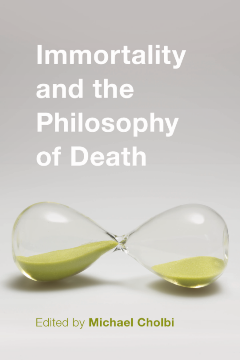
Additional Information
Book Details
Abstract
Death comes for us all – eventually. Philosophers have long been perplexed by how we ought to feel about death. Many people fear death and believe that death is bad for the person who dies. But is death bad for us, and if so, how is its badness best explained? If we do not survive death –if death is simply a state of nothingness – how can death be bad for us? If death is bad for us, do we have good reason to live as long as possible? Would an immortal life really be a good human life – or would even an immortal life eventually become tedious and make us long for mortality?
This volume presents fourteen philosophical essays that examine our attitudes toward mortality and immortality. The topics addressed have become more urgent as scientists attempt to extend the human lifespan, perhaps even indefinitely. This book invites the reader to critically appraise his or her own attitudes toward death and immortality by exploring the ethical, metaphysical, and psychological complexities associated with these issues.
That the essays in this volume have stimulated so many questions in this short review should be taken as a testament to their interest -- and hence to the excellence of this volume as a whole […] Immortality and the Philosophy of Death is an extremely valuable addition to the philosophical literature on these fascinating issues.
Michael Cholbi is Professor of Philosophy at California State Polytechnic University Pomona.
This is a wonderful collection of original contributions on cutting-edge topics and literature of great human interest, with a helpful introductory essay.
John Fischer, Distinguished Professor of Philosophy, University of California, Riverside
This new collection of essays considers whether and when death is bad for those who die, as well as whether and when it would be good to live forever. The collection will be of great value to anyone who thinks seriously about mortality, and is a welcome addition to the literature on the philosophy of death.
Steven Luper, Murchison Term Professor, and Philosophy Department Chair, Trinity University
